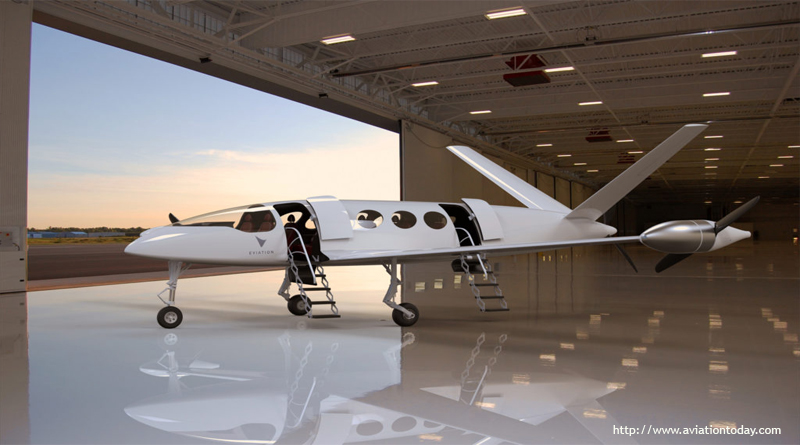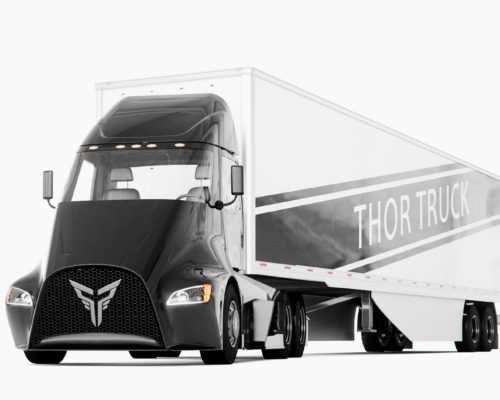Ideas Set To Change The World: Part II

Published on: Apr 13, 2018
The World Changing Ideas Awards started in 2017, celebrates businesses, policies and non-profits from around the world that help shift society to a more sustainable future. The winners are picked from 240 finalists and a pool of 1400 entries. This two part series at Iamrenew follows the stories of four winners of the 2018 World Changing Ideas Awards whose ideas are set to have a positive impact on the environment and society. Follow the first part here.
Thor Trucks
(Winner for Energy Category)

Electric Vehicle (EV) technology came into being in the early 1900’s but after its years of struggle for acceptance, now the world is on the brink of making these vehicles mainstream, with EVs being more powerful and reliable than conventional engines. EVs not only reduce emissions by 100% they are also cheaper to maintain.
In 2016 Giordano Sordoni and his partner Dakota Semler who were both 24 at the time decided to start a project that would have a positive impact socially and environmentally. Sordoni who suffered from asthma as a young child due to poor air quality and Semler whose family owned a fleet of trucks, decided the best business model was to build their own electric truck.
In 2017 Thor Trucks unveiled its first prototype ET-One, a semi that capable of hauling 80,000 pounds of weight and travel 300 miles in a single charge. Set to launch production in 2019 this company has changed the game in terms of electric trucks when compared to its biggest adversary Tesla.
Thor Trucks is a Frankenstein of a truck built using parts from various companies. The chassis comes from Navistar commercial truck along with a heavy-duty Dana axle and an off-the-shelf motor from TM4. They worked on their own battery technology creating a design in six months without any external funding using battery modules bought from various vendors. The founders are realistic about their expectations admitting that they don’t have the resources to build their truck from scratch.
Unlike Tesla’s truck that is planning to introduce its self-driven “autonomous” technology, which users are vary of, Thor Trucks plans on doing no such thing allowing the driver full control over the vehicle. The company is also partnering up with an existing manufacturer to scale up production, in order to make Thor Trucks the first electric semis to hit the market.
Priced at $150,000 per truck, Thor Trucks is more economically priced as compared to Tesla’s base model and other medium-duty trucks on the market.
Eviation’s Alice Commuter Plane
(Winner for Transportation Category)

Everyone has heard of electrically charged vehicles but now Israeli based start-up Eviation is planning on expanding that technology to conquer the skies with its all-electric, nine seater plane called Alice Commuter.
Omer Bar-Yohay, who is the founder of Eviation is a physicist by education and has over fifteen years of experience in leading multidisciplinary teams in adverse conditions to perform unique tasks as an ex-government employee. His expertise lies in electrical propulsion systems.
With companies like Boeing focusing on hybrid planes, Eviation planned to go all electric to make their flights as affordable as possible. The plane is 40 feet long with a wingspan of 44-feet. Its tail-mounted propeller does most of the work with help from the propellers placed at the tip of each wing, which are driven by electric motors in pods.
The battery is to be supplied by South Korea’s Kokam, a decision made due to Kokam’s small but close clientele. The plane is supposedly to contain 9400 battery cells distributed throughout the aircraft including the ceiling, wings and floor thereby comprising of nearly 60% of its take-off weight.
As the Alice Commuter is electric it can only travel small distances (650 nautical miles or 1200 km). This is because batteries store less energy by weight as compared to jet fuels. It is by virtue of its short distance commute that the Alice Commuter won’t face any rivalry with big commercial flights. Its low cost of maintenance and affordable rates further give it a competitive edge over the rest of the flights flying small distances.
With its unveiling done last year, the Alice Commuter is set to take its demonstration flight by 2019 and hopes to be certified and flying on a proof-of service route by 2021.




